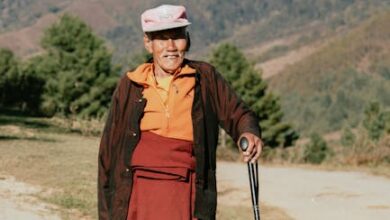He Wrote a Book About Antifa. Death Threats Are Driving Him Out of the US.

He Wrote a Book About Antifa. Death Threats Are Driving Him Out of the US.
Estimated reading time: Approximately 6 minutes
- Rutgers historian Mark Bray, author of “Antifa: The Anti-Fascist Handbook,” is facing death threats and online harassment, forcing him to seek exile from the US.
- His academic work on anti-fascist movements was misrepresented by far-right influencers, leading to a coordinated campaign of doxxing and credible threats against him and his family.
- Bray’s ordeal highlights a growing threat to academic freedom and intellectual discourse, demonstrating how online animosity can escalate into real-world danger for scholars.
- Protecting intellectual freedom requires supporting academic institutions, developing critical digital literacy, and fostering civil discourse to combat misinformation and harassment.
- The incident serves as a vital call to action to defend scholars and public figures who bravely explore controversial topics from intimidation and silencing tactics.
- He Wrote a Book About Antifa. Death Threats Are Driving Him Out of the US.
- The Crucible of Controversy: Bray’s Scholarship and Its Backlash
- Escalation to Exile: The Mechanics of Online Harassment
- Defending Intellectual Freedom: Actionable Steps for a Safer Discourse
- Real-World Example: The Climate Scientist Under Siege
- Conclusion
- Support Intellectual Freedom: Take Action Today
- Frequently Asked Questions
In an era of escalating political polarization, the line between academic inquiry and personal danger has become disturbingly thin. For Rutgers historian Mark Bray, researching and writing about a controversial topic has led to an outcome most scholars could never imagine: being driven out of his home country by a relentless campaign of online harassment and credible death threats.
This isn’t a hypothetical scenario from a dystopian novel; it’s a chilling reality unfolding in real time. Bray’s academic pursuit, a deep dive into the history and ideology of anti-fascist movements, ignited a firestorm that has tragically uprooted his life and career.
The severity of his situation underscores a growing concern for intellectual freedom and the safety of those who dare to explore contentious subjects. It highlights how quickly online animosity can metastasize into real-world peril, impacting individuals far beyond the digital realm.
Rutgers historian Mark Bray is trying to flee to Spain after an online campaign from far-right influencers was followed by death threats. He was turned back at the airport on his first attempt. This stark sentence encapsulates the harrowing ordeal of a scholar caught in the crosshairs of a culture war, forced to seek refuge abroad.
The Crucible of Controversy: Bray’s Scholarship and Its Backlash
Mark Bray is the author of “Antifa: The Anti-Fascist Handbook,” a work published in 2017 that aimed to provide a comprehensive, historical, and analytical overview of anti-fascist movements. His intention was to contextualize Antifa, tracing its origins, strategies, and ideological underpinnings across different historical periods, rather than to endorse its tactics or ideology.
However, in a deeply divided political landscape, academic nuance often falls victim to weaponized soundbites. Following the book’s release, and particularly after Bray made public statements discussing the historical context of anti-fascist actions, he became a lightning rod for criticism from far-right media outlets and influential online personalities.
These groups often misrepresented his work, selectively quoting passages or taking his academic analyses out of context to portray him as a proponent of violence or an ideologue for a radical movement. This mischaracterization served as the foundation for a coordinated attack, painting him as a dangerous figure rather than a dispassionate scholar.
The online environment, rife with echo chambers and confirmation bias, amplified these narratives exponentially. Bray’s academic exploration of a complex subject was reframed as advocacy, turning him into a symbol for broader ideological battles he never intended to engage in on a personal level.
Escalation to Exile: The Mechanics of Online Harassment
The initial online campaign against Bray quickly transcended mere criticism. It morphed into a barrage of online harassment, doxxing — the public release of private information like home addresses or phone numbers — and a torrent of vicious personal attacks. These digital assaults weren’t just unpleasant; they were designed to intimidate, silence, and instill fear.
What began with defamatory articles and social media smears soon escalated into concrete threats. Bray started receiving death threats, not just against himself, but also extending to his family. These weren’t abstract online taunts; they were explicit messages detailing violence, creating a tangible sense of peril that permeated every aspect of his life.
The psychological toll of such sustained harassment is immense. Living under the constant shadow of potential physical harm forces individuals to make drastic life changes. For Bray, it meant evaluating his personal safety, the security of his home, and the very viability of continuing his academic career in the United States.
Ultimately, the threats became so severe and pervasive that Bray felt he had no choice but to leave the country he calls home. The decision to uproot one’s life, abandon professional stability, and seek refuge abroad is not made lightly; it is a desperate measure taken when all other avenues for safety and peace have been exhausted.
Defending Intellectual Freedom: Actionable Steps for a Safer Discourse
Mark Bray’s story is a stark reminder of the vulnerability of scholars and public figures in an increasingly volatile online world. Protecting intellectual freedom and fostering a safer environment for discourse requires a multi-faceted approach involving individuals, institutions, and broader societal shifts. Here are three actionable steps we can all consider:
-
Support Academic Freedom and Press Protections
Advocate for stronger institutional policies and legal frameworks that safeguard scholars, journalists, and researchers from harassment, doxxing, and intimidation. This includes supporting organizations like the American Association of University Professors (AAUP) and PEN America, which actively work to defend academic and free expression. Engaging with your elected officials to discuss anti-doxing legislation or enhanced protections for those in public-facing roles can contribute to a safer environment.
-
Develop Digital Literacy and Critical Thinking Skills
Empower yourself and others to critically evaluate online information, identify misinformation, and recognize coordinated disinformation campaigns. Learning to verify sources, understand the motivations behind online content, and question emotionally charged narratives can help prevent the unwitting amplification of harmful campaigns. Educate your networks on the dangers of echo chambers and the importance of seeking diverse, credible perspectives.
-
Foster Civil Discourse and Respectful Disagreement
Actively promote environments where differing ideas can be discussed and debated without resorting to personal attacks, threats, or dehumanizing language. Challenge hateful rhetoric and online bullying when you encounter it, not just by condemning it, but by modeling constructive engagement. Encourage empathy and understanding, recognizing that even deeply held opposing viewpoints can be discussed with respect for the individuals holding them. This creates a cultural shift away from demonization and towards genuine dialogue.
Real-World Example: The Climate Scientist Under Siege
Mark Bray’s experience is not isolated. Consider the plight of Dr. Michael Mann, a prominent climate scientist who, for years, has faced relentless online attacks, death threats, and legal challenges for his research linking human activity to climate change. Similar to Bray, Mann’s scientific findings were weaponized by deniers and ideologues, leading to severe personal and professional repercussions. His case, among many others, illustrates how intellectual inquiry, particularly on politically charged topics, can become a target, forcing individuals to dedicate immense resources to personal security and legal defense rather than their primary research.
Conclusion
The story of Mark Bray, a historian forced to flee his country because of his scholarship, serves as a grave warning about the fragility of intellectual freedom and the destructive power of unchecked online harassment. It underscores how easily academic rigor can be misconstrued, weaponized, and ultimately, used to silence critical voices.
His ordeal is a poignant reminder that the battle for open discourse is not confined to philosophical debates; it has real, personal consequences for individuals like Bray. The freedom to research, write, and teach without fear of reprisal is a cornerstone of any healthy, democratic society, and its erosion impacts us all.
As we navigate an increasingly polarized world, it becomes imperative to actively defend the spaces where complex ideas can be explored and discussed. Ignoring the plight of scholars and public figures under siege only emboldens those who seek to suppress uncomfortable truths and stifle independent thought.
Support Intellectual Freedom: Take Action Today
This is more than just Mark Bray’s story; it’s a call to action for everyone who values knowledge, truth, and the right to speak freely. Reflect on the actionable steps outlined above and consider how you can contribute to a safer, more intellectually robust public square. Share this article to raise awareness, engage in thoughtful discussions, and actively support initiatives that protect those brave enough to explore controversial topics.
Your voice matters in pushing back against the forces that seek to silence and intimidate. Let’s ensure that academic inquiry can thrive, not flee.
Frequently Asked Questions
Who is Mark Bray and why is he facing threats?
Mark Bray is a Rutgers historian and author of “Antifa: The Anti-Fascist Handbook.” He is facing death threats and a coordinated online harassment campaign from far-right influencers who have misrepresented his academic work, forcing him to seek refuge outside the US.
What is “Antifa: The Anti-Fascist Handbook” about?
The book, published in 2017, provides a comprehensive, historical, and analytical overview of anti-fascist movements. Bray’s intention was to contextualize Antifa’s origins, strategies, and ideology across different historical periods, not to endorse its tactics or ideology.
What can individuals do to protect academic freedom?
Individuals can support academic freedom by advocating for stronger institutional policies, developing digital literacy to identify misinformation, and fostering civil discourse to promote respectful disagreement. Supporting organizations like AAUP and PEN America also helps protect scholars and free expression.





